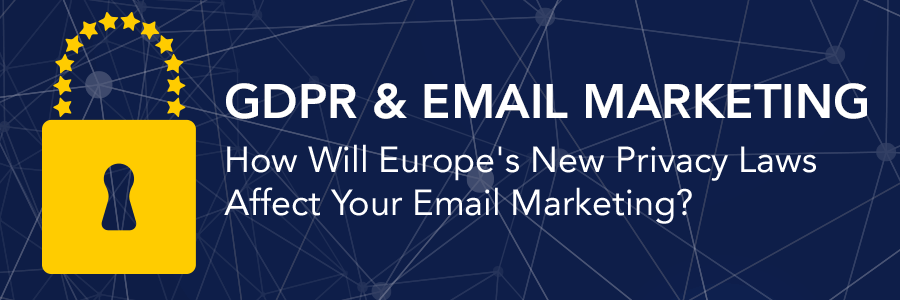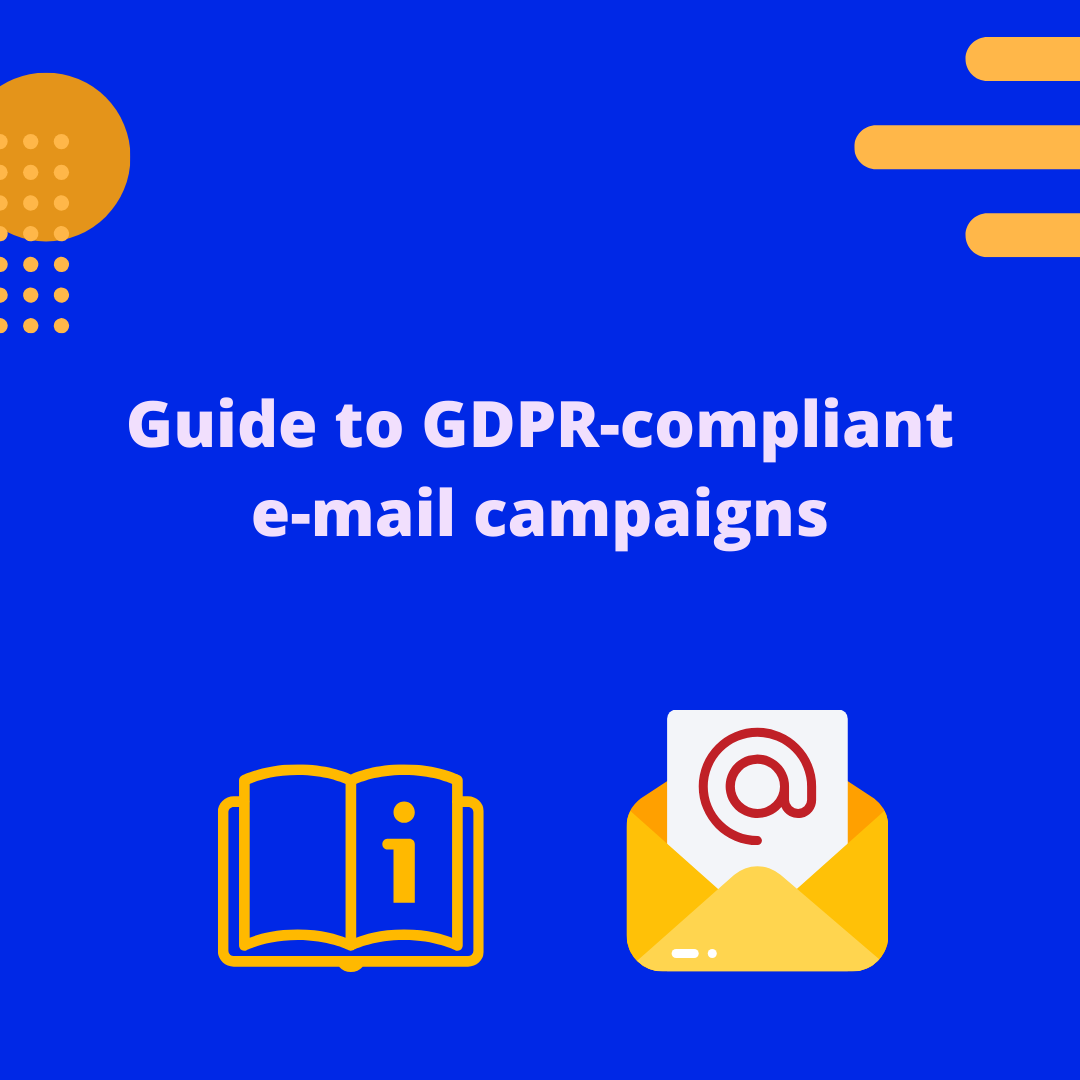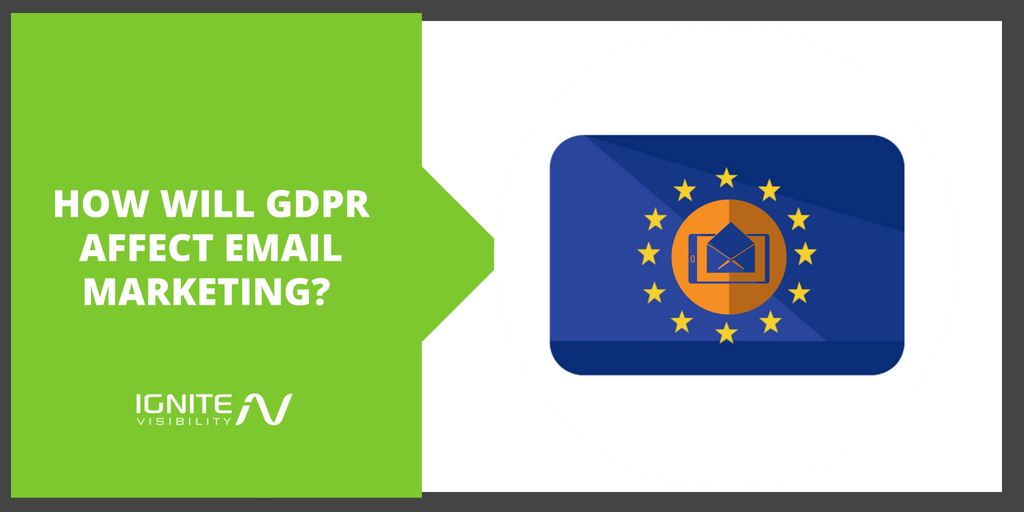GDPR will significantly impact email marketing. It enforces stricter rules on data privacy.
Marketers must adapt to avoid penalties. Email marketing is a powerful tool for businesses. But with GDPR, there are new challenges. GDPR, or General Data Protection Regulation, aims to protect personal data of EU citizens. It changes how companies collect and use information.
This means stricter consent requirements for email lists. Businesses must ensure they follow these guidelines. Otherwise, they risk heavy fines. Understanding GDPR’s effects on email marketing is crucial. It helps marketers stay compliant while maintaining effective campaigns. Let’s explore how GDPR will shape the future of email marketing.
Introduction To Gdpr
With the rise of digital communication, protecting personal data has become vital. The General Data Protection Regulation (GDPR) aims to safeguard this data. This regulation affects many areas, including email marketing. Understanding GDPR is key for anyone involved in email marketing.
What Is Gdpr?
GDPR stands for General Data Protection Regulation. This law was enacted in the European Union (EU). It regulates how personal data is collected, stored, and used. Companies must follow these rules or face heavy fines.
GDPR applies to all businesses dealing with EU citizens’ data. Even if your company is not in the EU, you must comply. This law ensures users have more control over their personal information. It promotes transparency and trust between businesses and consumers.
Key Principles
GDPR is based on several key principles. These principles guide how data is handled. First, data must be processed lawfully, fairly, and transparently. Users must know how their data is used.
Second, data should be collected for specific, legitimate purposes. You cannot use data for unrelated reasons. Third, data collected must be relevant and limited to what is necessary. Do not collect excessive information.
Fourth, data must be accurate and kept up to date. Incorrect data should be corrected quickly. Fifth, data should be stored only as long as needed. Do not keep data longer than necessary.
Finally, data must be processed securely. Protect data from unauthorized access and breaches. Following these principles ensures compliance and builds user trust.
Gdpr’s Impact On Email Marketing
The General Data Protection Regulation (GDPR) has changed the way businesses handle personal data. Email marketing is no exception. Companies must now follow strict rules to collect, store, and use email addresses. This ensures the privacy and protection of individuals.
Data Collection Rules
Under GDPR, businesses must follow clear rules to collect data. They need to explain why they are collecting the data. They must also tell users how they will use it. The data collected must be necessary for the purpose stated. This means no extra data can be collected without reason.
Businesses must also keep records of data collection. These records should show consent was given. They should also show the purpose of data collection. This helps ensure transparency and accountability.
Consent Requirements
GDPR requires businesses to get clear consent from users. Consent must be given freely. It must be specific and informed. Users should know what they are agreeing to. They should also know how their data will be used.
Pre-checked boxes and implied consent are not allowed. Users must take an action to give consent. This could be ticking a box or clicking a button. Businesses must also provide an easy way for users to withdraw consent. This ensures users have control over their data.
Building Gdpr-compliant Email Lists
Building a GDPR-compliant email list is essential for maintaining trust and avoiding penalties. The GDPR requires explicit consent from individuals before collecting their personal data. This means businesses must use clear and simple methods to get this consent. Below are some effective ways to build GDPR-compliant email lists.
Opt-in Methods
Opt-in methods are crucial for GDPR compliance. They ensure subscribers give explicit permission to receive emails. Here are some popular opt-in methods:
- Single Opt-In: Users enter their email and click subscribe. No further action is needed.
- Double Opt-In: Users receive a confirmation email after signing up. They must click a link to confirm their subscription.
Both methods are effective, but double opt-in provides an extra layer of security and compliance.
Double Opt-in Benefits
Double opt-in not only ensures compliance but also offers several benefits:
- Higher Quality Lists: Subscribers are genuinely interested.
- Reduced Spam Complaints: Fewer chances of emails being marked as spam.
- Better Engagement Rates: Engaged subscribers lead to better open and click rates.
| Benefit | Description |
|---|---|
| Higher Quality Lists | Subscribers show genuine interest in your content. |
| Reduced Spam Complaints | Confirmation reduces the risk of spam complaints. |
| Better Engagement Rates | Engaged subscribers lead to improved metrics. |
Implementing double opt-in can help improve your email marketing results. It ensures compliance and builds a more engaged audience.

Credit: www.cosoit.com
Transparency And Communication
The General Data Protection Regulation (GDPR) has brought major changes to email marketing. One key area is transparency and communication. Businesses must now be clear about how they collect and use personal data. They also need to communicate effectively with their subscribers. This ensures trust and compliance with GDPR rules.
Clear Privacy Policies
Under GDPR, businesses must have clear privacy policies. These policies should explain how personal data is collected, stored, and used. They should be easy to understand. Here are some key points to include in your privacy policy:
- What data you collect
- How you use the data
- Who you share the data with
- How long you keep the data
- How subscribers can access and update their data
A clear privacy policy helps build trust with your subscribers. It also shows that you comply with GDPR requirements.
Subscriber Communication
Communication with subscribers is crucial under GDPR. You need to keep them informed about their data. Here are some ways to improve subscriber communication:
- Consent Requests: Ensure your consent requests are clear and specific. Subscribers should know what they are agreeing to.
- Regular Updates: Send regular updates on how you use their data. This keeps subscribers informed and engaged.
- Easy Opt-Out: Provide an easy way for subscribers to opt-out. This should be clearly visible in every email.
By maintaining open communication, you ensure compliance with GDPR. You also build a stronger relationship with your subscribers.
Data Subject Rights
The General Data Protection Regulation (GDPR) brings significant changes to email marketing. One of the key areas affected is the data subject rights. These rights empower individuals to control their personal data. Understanding these rights is crucial for email marketers. This section explores two important data subject rights: the right to access and the right to erasure.
Right To Access
Under GDPR, individuals have the right to access their personal data. This means they can request information about how their data is used. They can also ask for copies of their data. Email marketers must provide this information promptly. Failure to comply can result in penalties. Marketers should have systems in place to handle these requests efficiently.
Right To Erasure
The right to erasure, also known as the right to be forgotten, allows individuals to request the deletion of their data. This right applies in certain circumstances, such as if the data is no longer needed for its original purpose. Email marketers must honor these requests. They should delete the data from their systems and backups. This ensures compliance with GDPR and builds trust with subscribers.

Credit: www.cleverreach.com
Handling Data Breaches
Handling data breaches is a critical aspect of GDPR compliance. Email marketers must be vigilant and proactive in managing data breaches. Protecting customer data not only maintains trust but also ensures compliance with GDPR regulations.
Breach Notification Process
Under GDPR, email marketers must notify authorities within 72 hours of a data breach. This quick response helps contain and manage the breach effectively. Failure to report in time can result in hefty fines.
Marketers must also inform affected individuals promptly. This notification should include details about the breach, the type of data involved, and steps taken to mitigate the damage. Clear communication reassures customers and maintains their trust.
Minimizing Risks
Reducing the risk of data breaches is essential. Regularly update security software and use strong passwords. Encrypt sensitive data to protect it from unauthorized access.
Conduct regular security audits to identify and fix vulnerabilities. Train employees on data protection practices. Encourage them to recognize phishing attempts and other threats.
By taking these steps, email marketers can safeguard customer data and comply with GDPR. Staying vigilant and prepared helps minimize the impact of potential breaches.
Tools And Technologies
The General Data Protection Regulation (GDPR) has transformed email marketing. Adhering to these rules is crucial. Using the right tools and technologies can make compliance easier. Below are some key tools to help with GDPR compliance.
Compliance Software
Compliance software ensures your email marketing aligns with GDPR. This software manages consent records. It helps document user consent and preferences. It tracks consent given by users for marketing purposes.
It also helps in data management. It can identify and delete outdated or non-compliant data. This reduces the risk of GDPR violations. Many tools offer automated data audits. These audits check for compliance regularly. Ensuring ongoing adherence to GDPR.
Secure Email Services
Secure email services protect user data. They use encryption to safeguard email content. This prevents unauthorized access. It also ensures sensitive information remains confidential.
Some secure email services offer additional features. These include two-factor authentication and secure data storage. These features enhance data protection. Ensuring your email marketing practices stay GDPR compliant.
Choosing secure email services also builds trust with your audience. It shows a commitment to protecting their data. This can improve engagement and customer loyalty.

Credit: www.admeet.eu
Future Of Email Marketing
The future of email marketing is rapidly evolving. GDPR has set new standards. It impacts how businesses communicate with consumers. Compliance is no longer optional. It is a necessity for all companies.
Evolving Best Practices
Email marketers must adapt to new rules. Consent is key. Businesses need explicit permission before sending emails. This changes how email lists are built. Purchased lists are risky. Building an organic list is safer and more effective.
Transparency is also crucial. Inform subscribers about data usage. Clear privacy policies build trust. Regularly update these policies to reflect changes. Use simple language. Avoid legal jargon.
Long-term Implications
GDPR will shape email marketing strategies. Marketers must focus on quality over quantity. Engaging content is vital. Subscribers want value in their inboxes. Provide useful information. Offer solutions to their problems.
Data protection is another priority. Secure databases and safeguard personal information. Data breaches can lead to heavy fines. They also damage reputation. Regular audits help maintain compliance. Invest in robust security measures.
Finally, maintain good relationships with subscribers. Respect their preferences. Allow easy opt-outs. Happy subscribers remain loyal. They are more likely to engage with your content.
Frequently Asked Questions
What Is Gdpr In Email Marketing?
GDPR, or General Data Protection Regulation, is a legal framework ensuring the privacy and security of personal data. It impacts how businesses handle and process personal data of EU citizens, including email marketing.
How Does Gdpr Affect Email Lists?
Under GDPR, businesses must obtain explicit consent from individuals before adding them to email lists. This means no more pre-ticked boxes or assumed consent; clear permission is needed.
Can I Send Marketing Emails Without Consent?
No, you cannot send marketing emails without explicit consent under GDPR. You must have clear permission from the recipient before sending any promotional emails.
How To Get Gdpr-compliant Consent?
To get GDPR-compliant consent, use clear and straightforward language. Ensure individuals know what they are signing up for and provide an easy way to opt-out.
Conclusion
The GDPR changes email marketing significantly. Businesses must prioritize user consent. Clear privacy policies are crucial. Users now have more control over their data. Marketers should respect this and build trust. Compliance isn’t optional; it’s a must. Adapting to these rules ensures better relationships.
Ethical practices lead to loyal customers. So, stay informed and adjust your strategies. Embrace these changes for a sustainable future in email marketing.



Leave a Reply